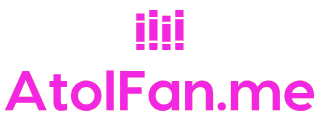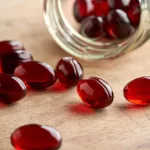Despite the persistent myth that sticking to the animal-free diet during pregnancy is unhealthy for the baby, this misconception is far from true. In fact, with proper planning and a well-balanced nourishment, being vegan can be not only safe but also incredibly beneficial for both the expectant mother and her child. However, it’s important to pay close attention to dietary choices, supplements, and overall. In this comprehensive guide, we will explore the nuances of a vegan nutrition for the moms-to-be, discuss required supplements for optimal maternal and fetal health, and provide helpful tips for navigating this transformative experience. Read more on the website https://littlebutterflylondon.com/.

Striving for Harmony and Sufficiency with a Vegan Pregnancy Diet
Choosing a proper food plan is a conscious decision that reflects compassion, ethical values, and sustainability. It prioritizes the well-being of both the expectant mother and the developing fetus. To ensure the health and well-being of both people involved, it’s essential to create an eating plan that meets all nutritional needs. Let’s explore the key elements to keep in mind:
- Healthy Fats
Incorporate sources of healthy fats, like avocados, nuts, and seeds. These fats are necessary for the development of your baby’s brain and nervous system.
- B Vitamins
To keep your energy levels up and support a healthy nervous system, make sure you’re getting enough B vitamins. You can find these essential nutrients in whole grains and fortified foods.
- Animal-Free Protein
Since getting enough protein is critical for the development of the baby’s organs and tissues, meet your protein needs by consuming legumes, tofu, tempeh, and seitan. These protein sources contain essential amino acids that are necessary for both the mother and the child’s health.
- Folate-Rich Foods
Getting enough folate is vital for preventing birth defects. Luckily, the excellent sources of folate can be found in lentils, chickpeas, and dark leafy greens.
- Iron-Rich Foods
Getting enough iron is something that cannot be disregarded. Make sure to include leafy greens, dried fruits, fortified cereals, and legumes in your regular diet to maintain healthy iron levels. Additionally, pairing iron-rich foods with vitamin C sources like citrus fruits can help enhance iron absorption.
- Hydration
It’s essential to stay properly hydrated during your pregnancy. Opt for water, herbal teas, and natural fruit juices as excellent beverage choices. Maintaining proper hydration is essential for keeping amniotic fluid levels stable and preventing dehydration.
- Calcium Sources
If you’re aiming to meet your calcium needs without consuming dairy products, you can incorporate fortified animal-free milks, tofu, kale, and collard greens into your meals. These sources offer the necessary calcium for both fetal bone development and general maternal health.
- Omega-3 Fatty Acids
To support your baby’s brain development, include omega-3 fatty acids in your diet. You can do this by incorporating foods like flaxseeds, chia seeds, and walnuts into your meals. These sources provide the essential fats that are necessary for optimal brain development.
Fulfilling Nourishing Gaps with Vegan Pregnancy Supplements
There are certain vitamins and minerals may be more challenging to obtain in sufficient quantities. Therefore, it is highly recommended to consider taking special complements. Let’s explore them:
- Iodine is an essential nutrient required for the proper functioning of the thyroid gland and optimal brain development. Including a complement that contains iodine can help ensure that both mom and her child receive an adequate supply of this important mineral.
- Omega-3 complements made from algae are a oftentimes a must for vegan pregnancies, o. These additives contain DHA and EPA, which are vital fatty acids that contribute to the child’’s brain and eye development.
- Vitamin D is essential for the absorption of calcium and maintaining healthy bones. While sunlight exposure allows our skin to synthesize vitamin D, vegan mothers may require supplementation to ensure they meet their vitamin D needs.
- If blood tests show that you have anemia, in addition to getting iron from your eating plan, your healthcare provider may recommend taking an iron additive. Make sure to consult with them to determine if you need complement iron.
- Prenatal vitamins generally include folic acid, iron, calcium, and other essential vitamins and minerals that promote healthy fetal development.
- Vitamin B12 is not naturally found in animal-free foods, so vegan moms-to-be need to take B12 additives. This helps ensure that their nerve function remains optimal and prevents the occurrence of anemia or other health issues.
If you find it challenging to meet your daily calcium needs through food alone, additives may be necessary. Make sure to choose a vegan-friendly additive that is well-absorbed by the body.
Exploring the Options – What to Eat for an Optimal Vegan Pregnancy
Let’s now explore the particular food choices that promote optimal health during this transformative experience.
- Tofu and tempeh are excellent animal-free protein options that offer versatility in cooking. Whether added to stir-fries or used as the star ingredient in sandwiches, these ingredients provide a good amount of protein, iron, and calcium.
- Fortified foods like animal-free milk alternatives and cereals are great for ensuring that you’re getting calcium, vitamin D, and B vitamins. These fortified foods can help meet your nourishing needs effectively.
- Seaweed and algae are beneficial for maintaining optimal iodine levels, which are vital for thyroid function and fetal brain development. These sources provide an excellent supply of iodine.
- Leafy greens like kale, spinach, and collard greens are excellent sources of iron, calcium, and folate. These dark leafy greens can be added to a wide range of dishes including salads, stir-fries, and smoothies, making them versatile options for incorporating into your meals.
- Nuts and seeds like almonds, walnuts, flaxseeds, and chia seeds are packed with fundamental nutrients. These nourishing powerhouses provide a rich source of healthy fats, protein, and omega-3 fatty acids.
- Whole grains such as quinoa, brown rice, and whole wheat pasta are binding. These grains offer complex carbohydrates and B vitamins, which are essential for maintaining sustained energy levels and promoting overall well-being.
- Fruits and vegetables are evident yet no less compulsory. These nutrient-rich foods offer an array of vitamins, minerals, and antioxidants that provide necessary support for both the mother and the developing baby.
- Legumes, such as beans, lentils, and peas, are great sources of protein, fiber, and folate. Additionally, they offer a significant amount of iron that is paramount for preventing anemia during pregnancy.











